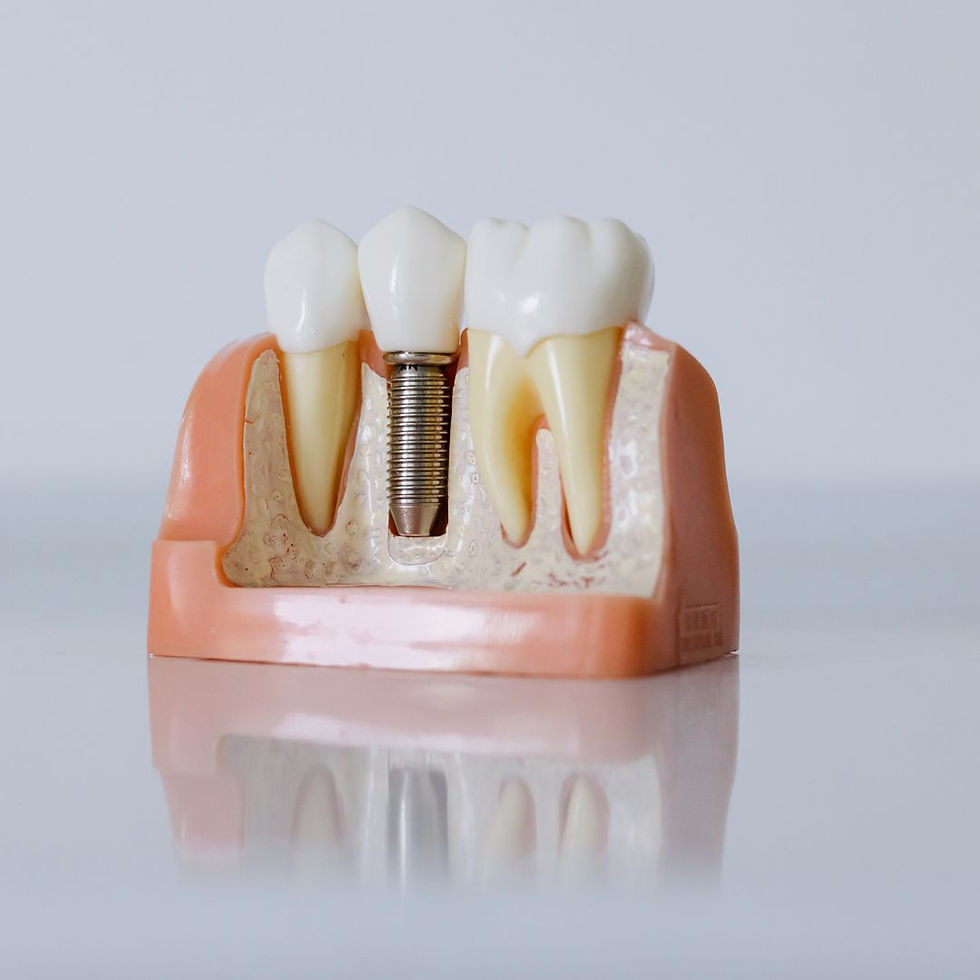What Dental Implants Have the Highest Success Rate?
- canyonstatedental1
- Sep 18
- 3 min read

Missing teeth affect more than just your smile – they impact your ability to eat favorite Arizona foods, speak clearly, and maintain facial structure. When Chandler residents consider tooth replacement options, dental implants consistently demonstrate the highest success rates among all available treatments.
Understanding Implant Success Rates
Titanium dental implants boast remarkable success rates of 95-98% when placed by experienced practitioners. This exceptional performance stems from titanium's unique biocompatibility, allowing natural bone integration through a process called osseointegration. The material essentially becomes part of your jaw structure, creating a foundation more stable than natural tooth roots.
Research spanning decades confirms these impressive statistics. A comprehensive study published in the Journal of Oral and Maxillofacial Surgery tracked over 10,000 implants across 15 years, revealing a 97.2% success rate for properly placed titanium implants. These numbers reflect real-world outcomes, not laboratory conditions.
Factors Influencing Implant Success
Several critical elements determine implant success beyond material choice:
Surgical Technique and Placement Precision Proper implant positioning requires three-dimensional accuracy within millimeters. Advanced imaging technology, including CBCT scans, allows surgeons to plan exact placement angles and depths. This precision prevents nerve damage and ensures optimal bone contact.
Bone Quality and Quantity Arizona's sunny climate means many residents maintain active lifestyles well into retirement. However, bone density naturally decreases with age. Sufficient bone volume provides essential support for implant stability. When bone loss has occurred, grafting procedures can rebuild necessary structure before implant placement.
Post-Surgical Care and Healing The desert climate presents unique challenges during healing. Staying properly hydrated supports tissue recovery, while avoiding hard foods during the initial healing phase prevents implant disruption. Following specific post-operative instructions significantly impacts final outcomes.
Implant System Variations and Success Rates
Traditional Two-Stage Implants These time-tested systems involve initial implant placement followed by a healing period before crown attachment. Two-stage implants demonstrate the highest documented success rates, particularly for single tooth replacement. The extended healing time allows complete osseointegration before loading forces are applied.
Immediate Load Implants Same-day implant and crown placement appeals to busy professionals who cannot take extended time off work. While convenient, success rates vary based on bone quality and bite forces. Immediate loading works best for front teeth with lighter chewing demands.
Mini Implants Smaller diameter implants suit patients with limited bone width or those seeking less invasive procedures. While success rates remain high (92-95%), mini implants typically support lighter chewing forces than traditional-sized options.
Specialist Expertise Makes the Difference
Board-certified oral surgeons and periodontists complete extensive additional training beyond dental school. This specialized education covers complex anatomy, surgical techniques, and complication management. When seeking dental implants Chandler residents benefit from specialist-level care that maximizes success probability.
Canyon State Dental partners with leading implant specialists throughout the Valley to ensure patients receive the highest standard of care. Their collaborative approach combines general dentistry expertise with specialist precision for optimal outcomes.
Location-Specific Considerations
Chandler's active community includes many outdoor enthusiasts who participate in mountain biking, hiking, and recreational sports. These activities increase trauma risk, making implant durability crucial. Titanium implants withstand significant forces while maintaining long-term stability.
The area's demographics include many retirees relocating from other states. Previous dental work quality varies significantly, sometimes requiring additional procedures before implant placement. Thorough evaluation identifies potential complications before they affect success rates.
Long-Term Maintenance and Success
Implant longevity depends heavily on ongoing maintenance. Professional cleanings every six months, proper home care, and regular evaluations preserve implant health. Unlike natural teeth, implants don't develop cavities, but surrounding gum tissue requires consistent attention.
When choosing a dentist Chandler patients should prioritize providers who emphasize preventive care alongside implant services. This comprehensive approach protects both natural teeth and implant investments.
Canyon State Dental maintains rigorous follow-up protocols to monitor implant health and address concerns promptly. Their commitment to long-term patient relationships ensures continued implant success well beyond initial healing.
Schedule your implant consultation today to discover how modern dental technology can restore your smile with confidence.







Comments